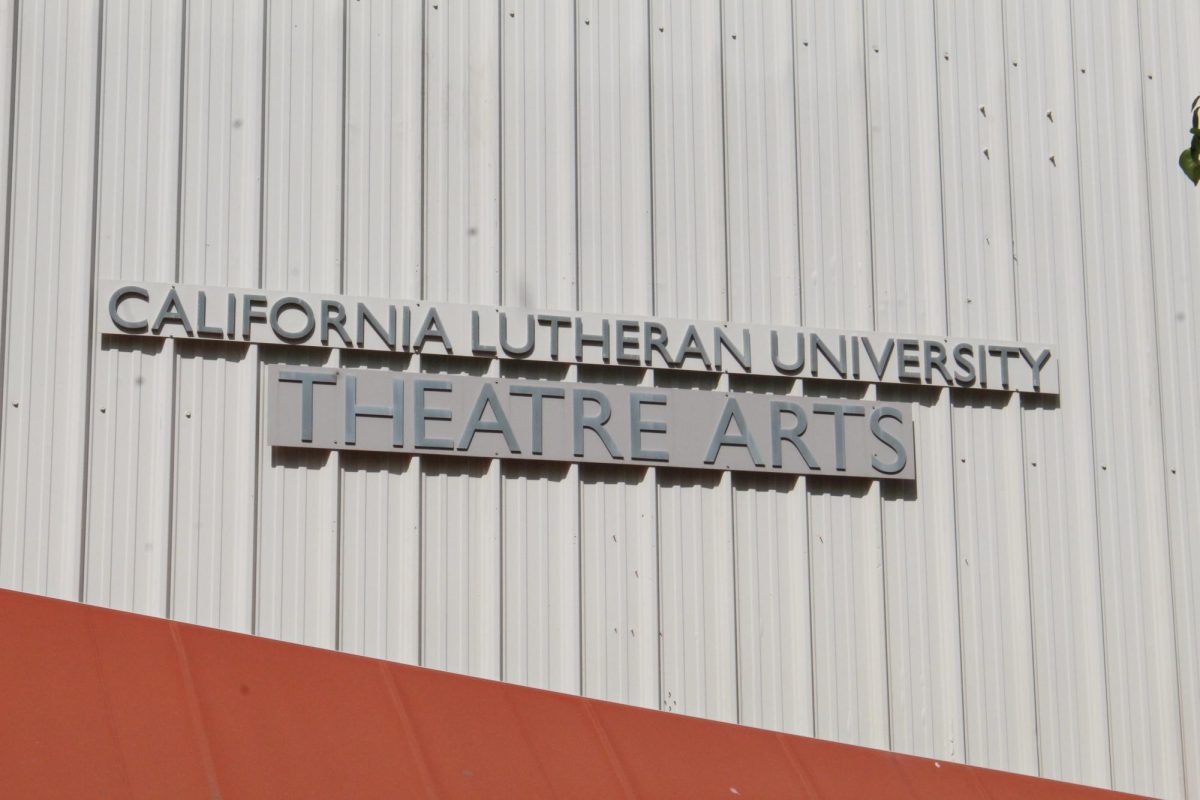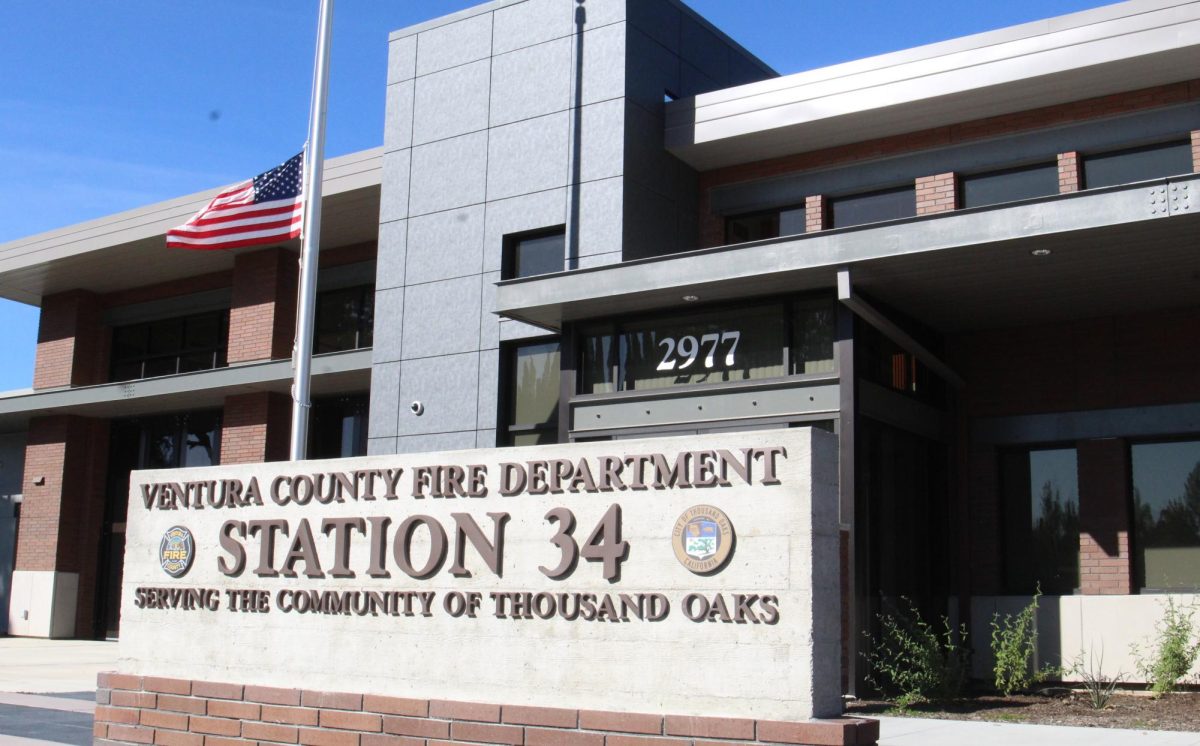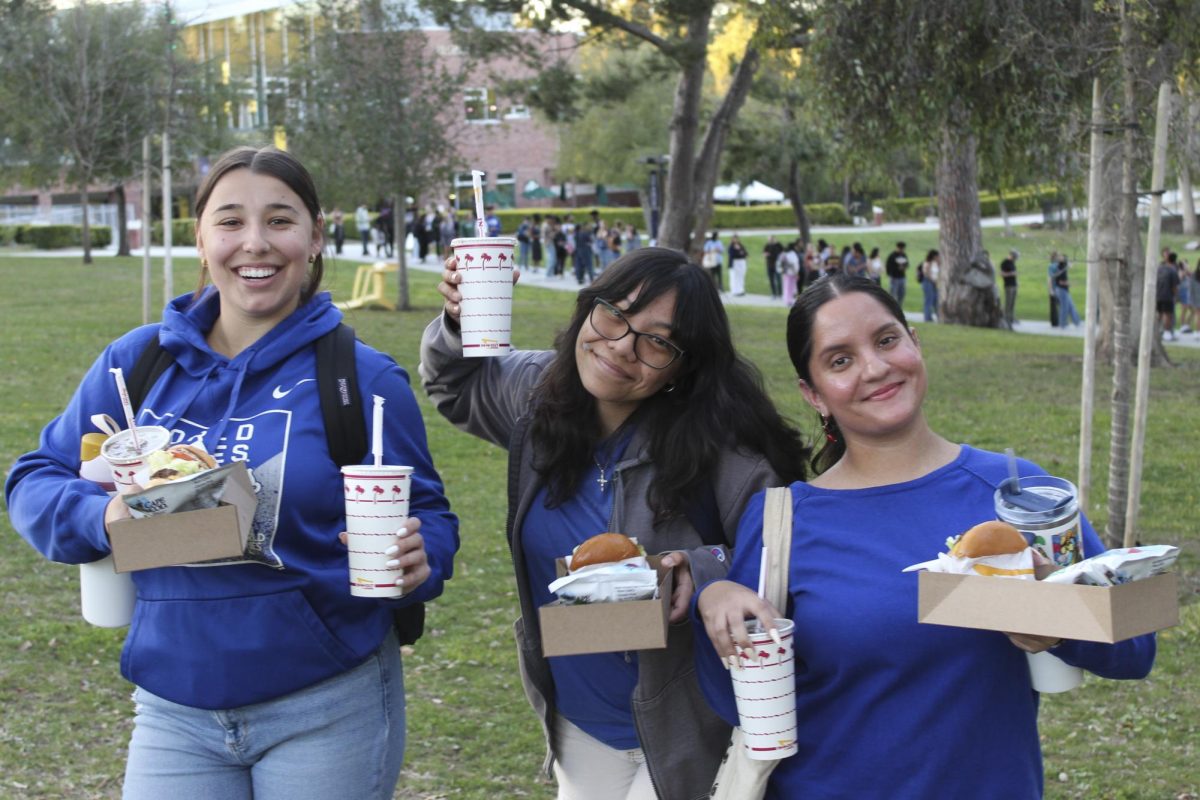California Lutheran University Interim President John Nunes and various campus leaders hosted a town hall meeting last Tuesday to update students, faculty and staff on the university’s financial situation, task force progress, and campus safety updates.
Brian Fahnestock, interim vice president for administration and finance said the university’s fall semester enrollment ended up being lower than expected, while expenses ended up being higher.
Fahnestock said he estimates that the university will end the fiscal year with a deficit of roughly $5.2 million, as opposed to a pre-projected $3.75 million. The new estimate did include expenses from Cal Lutheran’s other affiliated organizations, KCLU and Pacific Lutheran Theological Seminary.
“There’s a lot of pressure on the funds that we had built up over time right now, so we are really seeing that there are changes we need to make going forward,” Fahnestock said. “We think this year we’ll use about 5.7 million of our savings to cover everything.”
Laureen Hill, executive partner for strategic planning & business development said the university is focused on finding immediate, short-term and long-term solutions to these problems.
“We have tremendous participation in a lot of good people with good commitment to this organization who are helping us really explore how we can turn things around in the short term, and by short term, I don’t mean immediate,” Hill said.
In lieu of the financial data laid out by Fahnestock, Hill said the university has formed a task force to specifically deal with immediate issues. Hill said the necessity came about due to the fact that short term solutions may take 2 to 3 years to implement.
“We decided we need something more immediate because if we can trim the deficit and give us a little bit more runway, we won’t have to worry about depleting our savings account fully,” Hill said.
Hill said the administrative cabinet has been tasked with deliberating immediate solutions, and said they are focused on both “expense reduction and revenue generation.” Hill also said the group is looking for ways to cut costs by targeting redundancies and inefficiencies within the university, and reevaluating how Cal Lutheran uses spaces and utilities.
“We know that we will never cut our way out of this, so maybe everybody can take a little deep breath,” Hill said. “These are the kinds of things we’re looking at to say, ‘Can we save six figures by how we use our space?’ I mean, that’s impactful.”
Hill also said the task forces have discussed utilizing technology, different teaching methodologies and creating more multidisciplinary instruction.
“There’s a big gap in terms of the ethics of AI,” Nunes said. “And could it be that a liberal arts education prepares us to grapple with what is in that gap?”
The meeting also discussed new additions to the Board of Regents, including alum and current partner at Collins + Collins LLP David Barker, alumna and Director of the Higher Ed Immigration Portal Felecia Russell, Executive Vice President and Director of Wealth Management at Montecito Bank & Trust Jeff Pittman, and Rev. Jana Schofield, chair elect for the university convocation.
Nunes said he wants board members to share their expertise and fiduciary responsibility to the fullest, while still letting faculty, staff and administration to implement the work on campus.
“A guiding principle is that we want board members to have their eyes on our work, their minds and hearts applied to our strategies, and their hands on nothing,” Nunes said. “They need to be thinking really about the future so that we can focus on what’s right in front of us, and what’s right in front of us are our students.”
The meeting also focused on how Cal Lutheran is providing information and resources to all students regarding their own or their families’ documentation statuses.
In a video message played during Tuesday’s meeting, Deanna Hernandez, director of undergraduate admission said the university is “meeting students where they are” by connecting with them one-on-one, planning for their futures via vision boarding, and launching a six-part workshop geared towards helping students build their own businesses.
Nunes said the challenges confronting the university are being met with an “active, not passive posture” from his colleagues, and recent “executive actions” from the federal government are not remiss from university discussions.
“We wanted to communicate that although we have not issued a university-wide declaration of our disagreement with many of the executive actions, we are taking action ourselves to do our best to ensure that our students and our faculty and staff can, without distraction, pursue that pathway to possibility that an education provides.”
In addition to these updates, Director of Campus Safety David Hilke and Associate Vice President of Planning and Services Ryan Van Ommeren said due to various factors, all academic buildings on campus will require swipe access to enter after March 10.
Van Ommeren said the issue was seriously talked about following COVID-19 pandemic access restrictions, as well as advice from law enforcement, and Nunes said the change has been deliberated for a while and comes at the advice of safety assessments.
“We want our students to be safe from any harassment or interference in in their lives,” Nunes said. “We want them to feel safe and welcome and as if they belong and anything that gets in the way of that, we will work hard to figure out ways to mitigate against that.”
Towards the end of the meeting, Regina Biddings Muro, Vice President for University Advancement said Cal Lutheran Cares Day was restructured to better represent different entities on campus, inspired by the phrase “human flourishing.”
“Now, flourishing means much more than material success. or physical pleasure or being a person of achievement or acquisition for privilege,” Nunes said. “It means a a deep and meaningful living out of the calling for which you were intended in this world. And it means deep and meaningful relationships and it means that wherever you find yourself working or living, that you derive a sense of satisfaction and accomplishment in in who you are. And I believe that that’s our mission.”
Nunes also said the university plans to uphold it’s commitment to diversity, equity and inclusion, and credited the Cal Lutheran’s religious affiliation with how it carries out that mission.
“I don’t know how to say it more directly,” Nunes said. “In this time of challenge and in this time of budgetary challenge, challenges in our political environment, our commitment to diversity, equity and inclusion is not a performance and it’s not a political strategy, and it’s not an ideology. It’s what we believe.”





